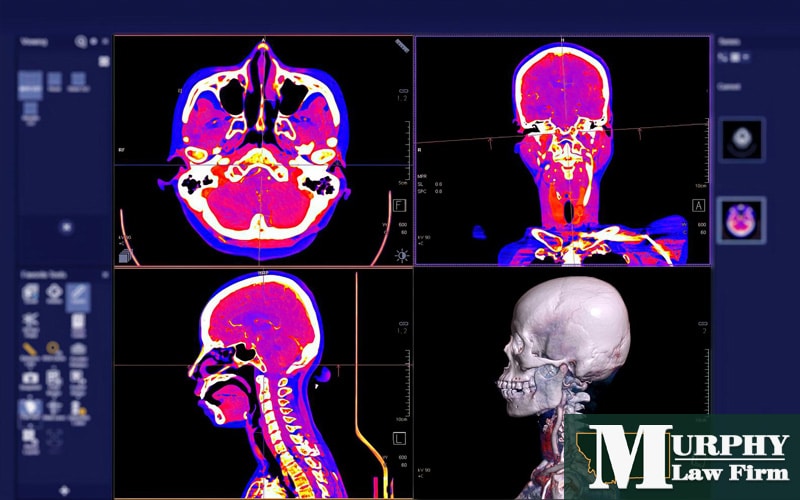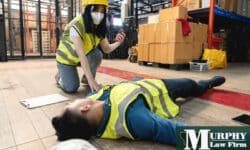
Learn how to prove an illness or disease is work-related so you can get the workers’ comp benefits you deserve
Like every state, Montana has workers’ compensation laws that have been put in place to protect injured workers and their employers. This insurance program pays for the medical bills and a portion of a worker’s wages when they become ill or injured on the job.
Unfortunately, occupational illnesses and diseases are sometimes more difficult to prove than workplace accidents like a car accident or slip and fall. It can be especially arduous for workers to link their illness or disease to their occupation, so it’s essential to understand how Montana’s workers’ compensation system works and hire an attorney to represent your best interests.
Does workers’ comp cover illnesses and diseases?
Yes. Most occupational illnesses and diseases are covered by workers’ compensation in Montana. To receive occupational disease compensation, individuals must prove a direct link between their disease or illness and their employment.
Since most occupational illnesses and diseases take a while to develop, workers will need to be able to establish a history of exposure to toxic substances or repetitive work activities and connect them directly to their illness or disease.
This can be accomplished through evidence like medical notes and doctor visits that show a worker has complained of the same symptoms over a period of time that corresponds to their job. It’s also possible to establish this link by demonstrating a pattern of illness or disease among co-workers or other workers in the same industry.
If you need help proving your occupational disease or illness is work-related, reach out to a local Montana workers’ compensation attorney who can help you gather evidence and connect you with medical experts who can substantiate your claim.
What occupational diseases are covered by workers’ compensation?
Not all illnesses and diseases are covered by workers’ compensation, though most conditions are so long as the employee can prove they became ill or developed a disease as a direct result of their employment.
Employees must prove 2 factors to qualify for benefits:
- The illness or disease was caused by conditions that are normal for and characteristic of their employment field. (For instance, coal dust causes lung cancer and is directly linked to being a coal miner.)
- The disease is not an ordinary part of life that everyone is exposed to, such as COVID-19.
Injuries can happen on any job in Montana, though some industries are more dangerous than others. The following are some of the most common occupational diseases and illnesses:
Carpal tunnel syndrome
Carpal tunnel syndrome is a condition that causes mild to moderate pain in the hands and wrists. This condition can also cause numbness and loss of function. In severe cases, surgery is required to treat carpal tunnel syndrome. This condition often occurs because of repetitive movement.
Back injuries
Back injuries are one of the most common occupational injuries. Back pain can arise from slipped or herniated discs. It can also be caused by broken bones. Sometimes, back pain can cause debilitation. Back issues are often the result of heavy lifting.
Cancer
Unfortunately, cancer is a danger in some industries. Exposure to certain types of chemicals in the workplace can lead to cancer. One of the most common occupational cancers is lung cancer.
Certain jobs expose workers to harmful substances that can lead to severe lung diseases. These include:
- Berylliosis. A lung disease caused by exposure to beryllium, a metal used in various industrial applications, leading to chronic beryllium disease (CBD).
- Silicosis. A lung disease caused by inhaling silica dust, common in construction and mining.
- Asbestosis. A chronic lung disease caused by inhaling asbestos fibers. Common types of workers exposed to asbestos include construction workers, shipyard workers, first responders, and workers involved in renovating old buildings.
Post-traumatic stress disorder (PTSD)
PTSD can result from either ongoing stress or an isolated incident. Some occupations tend to have a higher incidence of PTSD, such as police and EMTs.
Hearing loss
Hearing loss can be devastating, especially when it’s caused by a person’s job. Working around heavy and loud machinery can cause problems with a person’s hearing that become permanent.
Musculoskeletal disorders
Musculoskeletal disorders are also common injuries among workers. These may include:
- Tendonitis
- Rotator cuff injuries
- Thoracic outlet syndrome
- Epicondylitis
- Ligament and tendon sprains
- Broken bones
Burns
There are 3 types of burns. First-degree burns only produce redness and swelling. Second-degree burns produce blistering. Third-degree burns extend through several layers of tissue, often down to the bone, and can be life-threatening. Burns most commonly affect restaurant workers, firefighters, and those who work with chemicals.
Traumatic brain injuries
Brain injuries can range in severity. Whenever there is an open or closed head wound, brain injuries can occur. A person may suffer a brain injury after a fall or due to falling objects. Traumatic brain injuries can be life-altering and often require ongoing medical care.
Lead poisoning
Lead poisoning is a serious health risk in certain industries where workers are exposed to lead-contaminated materials, such as construction, painting, plumbing, and battery manufacturing. Over time, lead can accumulate in the body and cause various health issues, including cognitive impairments, kidney damage, and cardiovascular problems.
Long-term exposure can lead to permanent damage and and even death, making it critical for workers in high-risk industries to use protective measures and seek immediate medical care if they exhibit symptoms.
Montana workers’ compensation for brain bleed injuries
Brain bleed injury at work in Montana? Find out how to file a workers’ comp claim and get the most compensation possible.
What benefits are available for occupational diseases?
Workers’ compensation benefits are meant to reimburse workers for economic losses that result from a work-related injury or disease. These can include:
- Wage loss benefits. If you’re unable to work due to your illness or disease, workers’ comp provides wage replacement, typically two-thirds of your average weekly wage, to help make up for lost income.
- Medical benefits. All necessary medical treatments related to your occupational disease, including doctor visits, hospital stays, medications, and rehabilitation, are covered under workers’ compensation.
- Vocational rehabilitation. If your illness prevents you from returning to your previous job, you may be eligible for vocational rehabilitation services to help you train for and find new employment.
- Death benefits. In the unfortunate event of a worker’s death due to an occupational disease, workers’ compensation may provide death benefits to the surviving family members, including funeral expenses and a portion of lost wages.
The amount of compensation you can receive will depend on the medical treatments you require and how the disease impacts your ability to return to work.
What to do if you think you have an occupational disease or illness
If you believe your job has caused your disease or illness, it’s important to act promptly and take the following steps to secure workers’ comp benefits:
- Seek medical attention immediately. Visit a doctor as soon as possible to get a proper diagnosis. Your healthcare provider should be able to determine whether your illness or disease is work-related and recommend the necessary treatment.
- Notify your employer promptly. Once you’ve been diagnosed with an occupational disease, report it to your employer right away. In most cases, you have 30 days to notify your employer, but acting sooner is better to ensure your claim is processed efficiently. You should also provide written notice within a year.
- Complete a First Report of Injury Form. After notifying your employer, fill out the worker’s section of the First Report of Injury form. Your employer must complete their portion and submit it to their insurance carrier within 6 days. The insurance company will then forward the report to the Department of Labor and Industry (DLI) to officially begin your claim.
If your claim is denied, you have the right to file an appeal, but we strongly recommend that you seek the advice of a local workers’ compensation attorney for help with the process to increase your chance of success.
Get help from an experienced Montana work injury attorney
As a worker in Montana, you have the right to pursue workers’ comp benefits for your occupational illness, disease, or injury. Unfortunately, injured workers are sometimes unfairly denied their benefits.
If your claim gets denied, reach out to the experienced Great Falls workers’ compensation attorneys at Murphy Law Firm. We can connect you with medical experts, guide you through the claims process, and negotiate with the insurer to help you get fair compensation.




